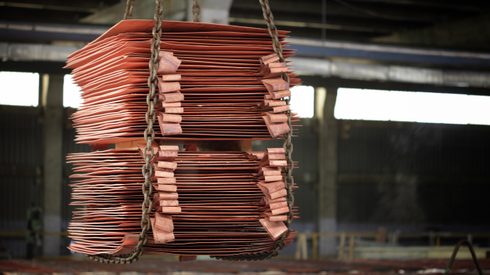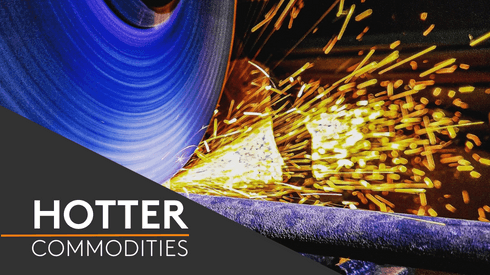The London Metal Exchange would be open to providing ‘reciprocal’ support to the Shanghai Futures Exchange as the Chinese bourse looks to expand its metals storage network internationally, LME ceo Garry Jones said.
The SHFE views the creation of an overseas warehousing system as an important component in its campaign to increase the exchange’s role in global price formation in the metals markets during the liberalisation and internationalisation of the Chinese economy.
SHFE currently has 27 domestic warehouse delivery points for its aluminium contract, 20 for zinc and 19 for copper. There are 15 SHFE warehouses listed for lead storage, seven for nickel and six for delivery against the tin contract.
The exchange had flagged its intention to set up warehouses internationally in previous years, but the drive to do so is likely to gain impetus as the Chinese government pushes ahead with regional infrastructural investments in support of the one belt, one road policy.
One example of the support that the LME could provide is in licensing SHFE to use the new LMEshield warehouse receipt management system in the Chinese exchange’s planned overseas warehouses, Jones suggested at Metal Bulletin’s 11th Asia Copper Conference in Shanghai on Wednesday November 18.
“We understand that Shanghai Futures Exchange is looking at offering international warehousing for its contracts, and we would welcome reciprocal arrangements in that regard … We think the time is right for that,” he said.
In return, the SHFE might lend its support to the LME’s longrunning campaign to list warehouses in China, Jones suggested.
The China Securities Regulatory Commission blocked an application by the LME to list warehouses in China back in 2007, and in the years since the exchange has not made significant headway in lobbying for a reversal of that decision.
The SHFE itself is understood to be opposed to the motion, due to concerns that the listing of LME warehouses in China would reduce arbitrage opportunities between the two exchanges and pose a threat to the SHFE’s role in establishing price references for the domestic metals markets.
Mark Burton
mburton@metalbulletin.com
Twitter: @mburtonmb





